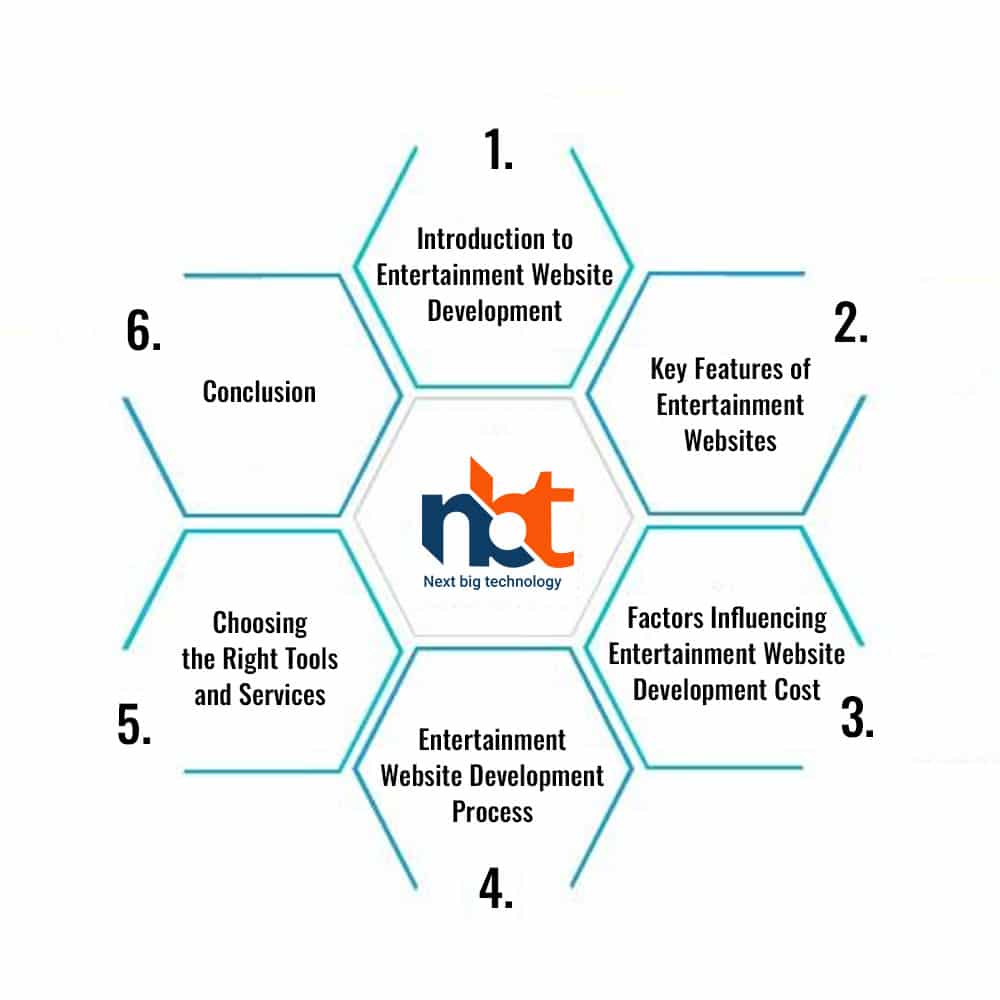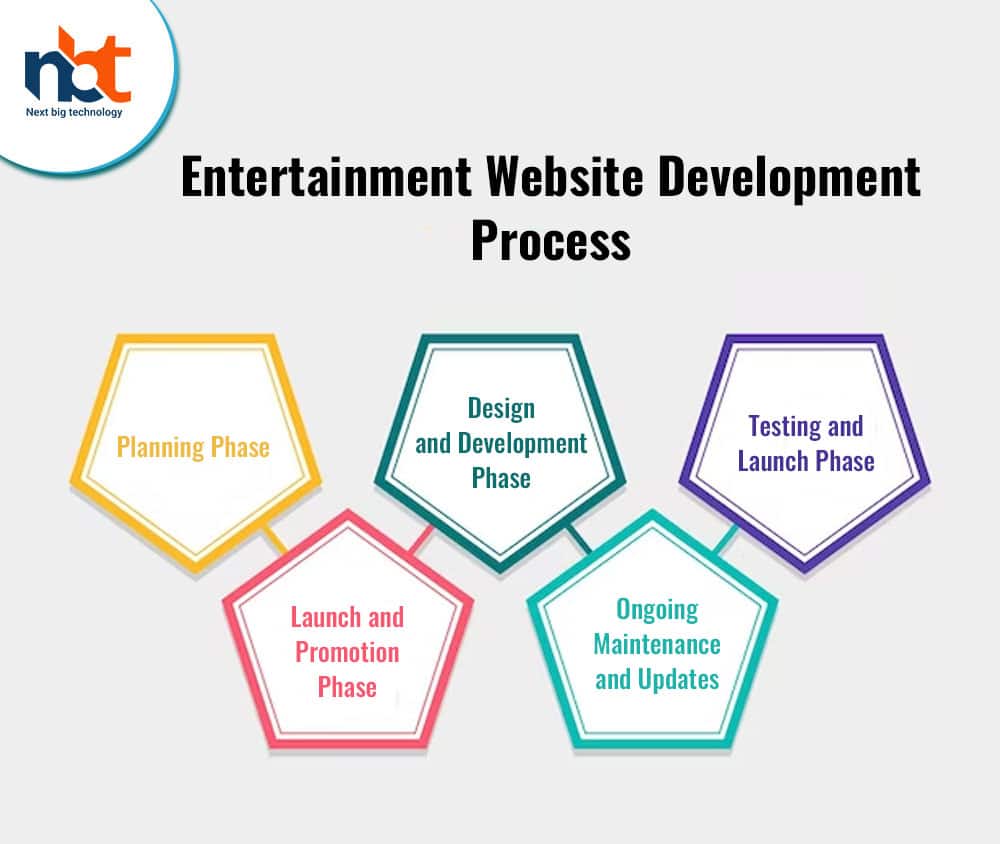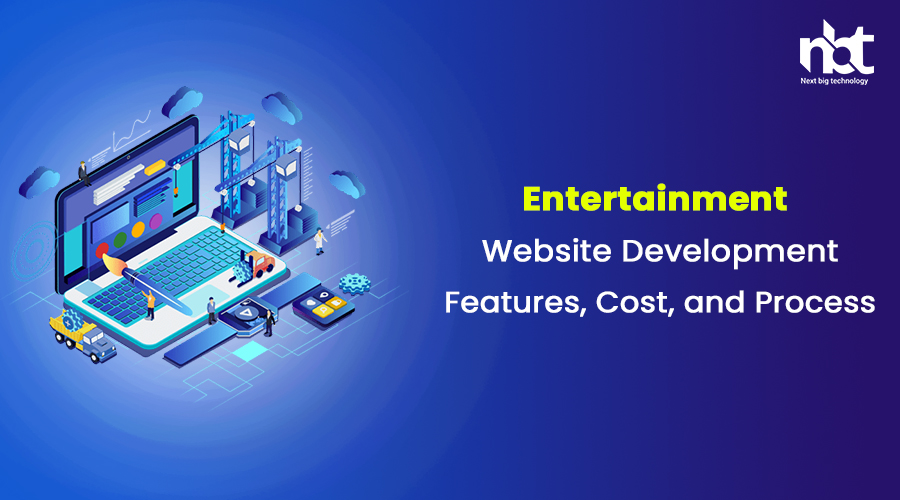In the digital era, entertainment websites play a pivotal role in offering a diverse range of content to captivate audiences worldwide. These platforms provide a gateway to movies, music, games, and more, keeping users engaged and entertained. This comprehensive guide delves into the crucial features, cost considerations, and step-by-step process involved in developing an alluring entertainment website.
Table of Contents
Introduction to Entertainment Website Development
- Understanding Entertainment Websites: Defining the significance of online platforms in providing diverse entertainment content.
- Impact of Entertainment Websites: Influencing pop culture, fostering engagement, and shaping trends.
Key Features of Entertainment Websites
Media Streaming:
- Video Content: Offering a library of movies, TV shows, web series, and documentaries.
- Music Streaming: Providing access to a wide array of songs, albums, and playlists.
- Podcasts: Hosting and distributing audio content on various topics.
Gaming and Interactive Content:
- Online Games: Featuring a collection of browser-based or downloadable games.
- User Engagement: Incorporating interactive quizzes, polls, and challenges.
- Virtual Reality (VR): Exploring opportunities for immersive VR gaming experiences.
Content Discovery:
- Personalized Recommendations: Suggesting content based on user preferences and viewing history.
- Trending Content: Showcasing popular movies, songs, and games.
- Search and Filters: Enabling users to explore content by genre, type, or artist.
User Interaction and Social Sharing:
- User Profiles: Allowing users to create accounts, customize profiles, and track activity.
- Ratings and Reviews: Enabling users to rate and review movies, songs, and games.
- Social Media Integration: Facilitating content sharing on social platforms.
Event Promotion:
- Concerts and Performances: Advertising upcoming music concerts and live events.
- Movie Releases: Announcing release dates and promoting upcoming films.
- Gaming Tournaments: Showcasing e-sports competitions and gaming events.
Responsive Design:
- Mobile Compatibility: Ensuring optimal performance and navigation on mobile devices.
- Adaptive Layout: Adapting design elements for varying screen sizes.

Factors Influencing Entertainment Website Development Cost
- Functionality and Complexity: The extent of features such as media streaming, gaming, and content discovery.
- Design and User Experience: Creating an intuitive and visually appealing interface for seamless engagement.
- Content Volume: Acquiring a substantial library of movies, songs, games, and interactive content.
- Custom Development: Adding unique features or integrations tailored to your website’s focus.
- E-commerce Integration: Incorporating options for premium memberships, subscriptions, or merchandise sales.
- Mobile Responsiveness: Ensuring the website functions seamlessly on various mobile devices.
- Ongoing Maintenance: Regular updates, security checks, and technical support.
Entertainment Website Development Process
1. Planning Phase
- Define Website Goals: Identify the primary purpose of the website (e.g., movies, music, games).
- Content Strategy: Plan the content categories, genres, and media types to be featured.
- Monetization Strategy: Determine how the website will generate revenue (ads, subscriptions, etc.).
- Technology Selection: Choose a content management system (CMS) or development platform.
2. Design and Development Phase
- User Experience Design: Design an immersive and user-friendly interface for content consumption.
- Content Acquisition: Acquire a diverse library of movies, songs, and games through licensing.
- Media Streaming Integration: Integrate platforms for seamless video and audio playback.
- Monetization Implementation: Add payment gateways, subscription models, or ad integrations.

3. Testing and Launch Phase
- Quality Assurance: Thoroughly test media streaming, interactive content, and payment processes.
- User Testing: Invite users to navigate the website and provide feedback on usability.
- Mobile Testing: Ensure responsive design and optimal performance on mobile devices.
- Security Checks: Implement measures to protect user data and prevent unauthorized access.
4. Launch and Promotion Phase
- Final Deployment: Upload the website to the chosen hosting server.
- Promotion Strategy: Advertise the website through social media, partnerships, and campaigns.
- User Engagement: Encourage users to create accounts, rate content, and share their favorites.
- Analytics Setup: Implement tracking tools to monitor user behavior, engagement, and content popularity.
5. Ongoing Maintenance and Updates
- Regular Content Updates: Keep the media library current with new releases and trending content.
- Technical Support: Address technical issues and user inquiries promptly.
- Performance Optimization: Regularly optimize website speed and loading times.
- Security Measures: Implement regular updates, security patches, and anti-piracy measures.
Choosing the Right Tools and Services
- Content Management Systems (CMS): Explore options like WordPress, Joomla, or custom platforms.
- Media Streaming Platforms: Consider services like Vimeo, YouTube, or dedicated media streaming solutions.
- Gaming Integration: Utilize gaming platforms or plugins for hosting online games and interactive content.
- Monetization Tools: Choose payment gateways, subscription management systems, and ad networks.
- Analytics and Reporting Tools: Implement tools for tracking user engagement and content popularity.
Conclusion
An entertainment website serves as a dynamic hub for diverse content that keeps users engaged, informed, and entertained. The features you incorporate, the design complexity, and the ongoing maintenance efforts all contribute to the overall cost. By following a structured development process, leveraging suitable tools, and focusing on user engagement, you can create an immersive online platform that captivates audiences with movies, music, games, and interactive experiences, thus contributing to a vibrant digital entertainment landscape.










